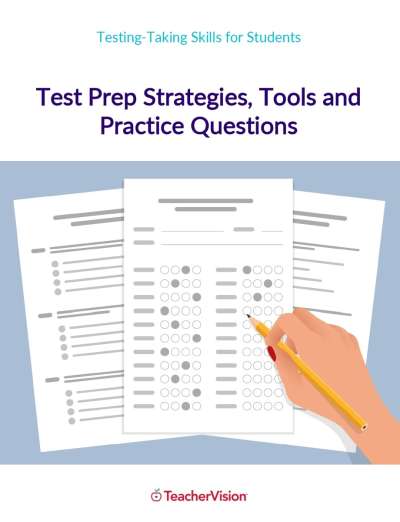Building Social Studies Skills
Grade 6
Tips for Parents
Watch the television news together regularly. Let the events on thenews -- human interest stories, hurricanes, elections, and the peoples andcircumstances of other countries -- become a basis for conversation. You mightalso watch documentaries about historical figures with your child; biography isa good basis for helping children learn about history. Such documentaries arebecoming more common, especially on public television and certain cablenetworks. Documentary programs are also available on videocassette and can bechecked out of libraries and rented from many video stores.
Ask what would happen if the oil-producing countries agreed to sell onlyone-half as much oil as they now sell. (The price of oil and of many other goodswould probably increase dramatically.)
Many cities have nicknames. Can your child identify the following: theMotor City (Detroit), the Windy City (Chicago), the City of Angels (Los Angles),the City by the Bay (San Francisco).
Children in intermediate grades will notice and ask about the problems thatthey see around them: homelessness, drugs, conflict. It is good to talk aboutthese issues. Ask your child whether he or she is discussing such topics inschool. Does your child have unanswered questions?
See what your child has to say about why countries need laws, and about whypeople and countries fight.
Inquire about the work of demographers (specialists who keep track ofpopulation growth, habits and beliefs, trends, and the like). Look at somecensus data about your community and discuss its meaning. What does it tell youabout race? Income? Education?
Have your child place various events into chronological order. Try thefollowing events: the Renaissance, the Middle Ages, the Reformation, the RomanEmpire or the Babylonian Empire, the travels of Marco Polo, the city-states ofAthens and Sparta, the Punic Wars between Carthage and Rome.
See if your child can identify some of the following names related to theancient civilizations of Egypt, Greece, and Rome: Hippocrates, Homer, JuliusCaesar, Aristotle, Alexander the Great, Moses, Osiris, and Isis.
Sixth graders study religious traditions. Ask your child to tell you aboutthe Old Testament source of the Ten Commandments, monotheism and the Hebrews,Muhammad and the Koran, Jesus and the origins of Christianity, and GuatamaBuddha and the origins of Buddhism.
As part of your child's study of the ancient world, he or she will learnabout the civilization of early Egypt. Ask about the Egyptian practice ofpreserving the bodies of the dead (mummies). How were mummies prepared? (Withsurgery, chemical solutions, and cloth wrappings.) Why did the Egyptians dothis? (They believed that people would need their bodies in the afterlife.)
Reprinted from 101 Educational Conversations with Your 6th Grader by Vito Perrone, published by Chelsea House Publishers.
Copyright 1994 by Chelsea House Publishers, a division of Main Line Book Co. All rights reserved.




